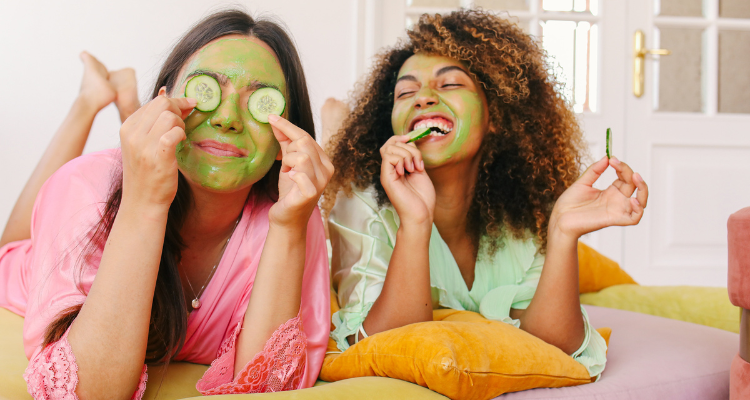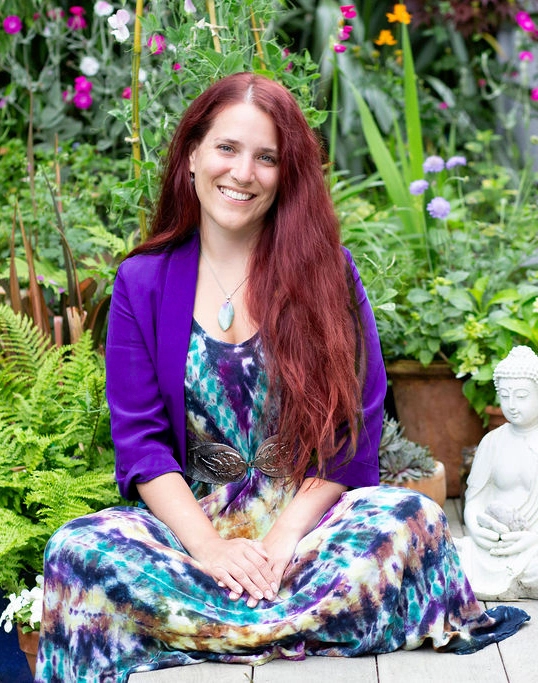The Truth about Self-Care
(what self-care really means vs what people think it means)
Bring self-love into your daily life in a fun & playful way!I'm in, let's go!
(what self-care really means vs what people think it means)

Before getting stuck into the nitty gritty of self-care, I think it’s important to remind ourselves of why self-care is super important, especially in this high-stress, modern world we live in.
Firstly, I’d like to remind you of the oxygen mask analogy – you can’t help others if you don’t take care of your own needs first. Self-care supports you with filling up your cup and avoids you having to run on empty, leading to illness, injury, or burnout.
Secondly, regular acts of self-care means you are less likely to get stressed, which results in an increase in rational thought which means you are more likely to choose to take care of yourself, and on the cycle goes.

Likewise, not taking care of yourself leads to an increase in stress, which results in a loss of rational thought, leading to you being less likely to choose to take care of yourself, and the cycle continues.
Overall, self-care can support you with your mental and physical health, and reduce your stress levels, all whilst increasing your energy, motivation, and productivity.
The self-care movement has exploded in the last few years, being portrayed in magazines and social media as bubble baths, face masks, and affirmations. But this is only the tip of the self-care ice-burg.
True self-care is not flashy Instagram posts of gorgeous, skinny, twenty-something-year-olds in candle-lit bubble baths declaring, “I AM ENOUGH”. Self-care is so much more than this, and quite frankly, a lot less sexy!
To truly care for yourself, and give yourself what you really need, first requires you to know who yourself is, and what your needs are, specific to you as an individual. There is no one-size-fits-all with this self-care thing.
Yes, there are a few basic standards to self-care – getting a good night’s sleep, taking regular breaks, getting enough rest, eating healthily, drinking plenty of water, attending to your personal hygiene, and moving the body.
But really, this can also be boiled down to self-reliance and survival instinct and is quite different from true self-care.
According to Beauchamp & Childress, 2001, the definition of self-care is “providing adequate attention to one’s own physical and psychological wellness”. But in reality, it’s so much more than this.
True self-care is holistic in nature, and refers to caring for the human condition in its’ entirety – physically, psychologically, mentally, emotionally, socially, and spiritually.
It’s about caring for, and tending to, your happiness and fulfillment, not just your basic needs for survival.
Self-care is more than just getting through the day, with a couple of extra deep breaths and a salad. It’s about gradually building a life for yourself that you don’t want to escape from.
It’s about being proactive toward your needs, wants, desires, and dreams. It’s about setting you up for success so you are less likely to fall at the next hurdle.
Self-care is so much more than the glamorised version we see on the Gram. True self-care requires hard work, sacrifice, compromise, dedication, discernment, and prioritisation.
At times you might have to work hard to motivate yourself to make positive choices. Other times you might have to sacrifice something you want to do, for something you know is better for you in that moment.
You might be required to compromise with yourself, or with your conditioned beliefs that are ‘shoulding’ you in another direction. You will be called upon to discern whether it’s an occasion for action or rest. And you will need to prioritise your wants and needs against each other, but also against the inevitable unavoidable chores of everyday life.
Self-care is about more than just caring for yourself, in this moment right now. And it’s even bigger than caring about yourself tomorrow or next week.
True self-care is about making choices your future self will thank you for – next week, next month, next year, next decade.
Sometimes this will be the choice you want to make in that moment e.g. choosing to rest or do something joyful. But other times it will require intense willpower to stop doing the thing that is bringing you immediate gratification, and make the choice that will support you more in the long run.

As we have already discovered, true self-care is about setting you up for success, so your future self is better able to deal with life’s stressors.
It’s about being pro-active towards your health and wellbeing, not just having the right tools to whip out in a re-active moment to stress.
Self-care is a practice and requires time and effort to build it up into a strong skill.
Life, with its inevitable ups and downs, will continue to throw sh*t your way, whether you like it or not. Self-care is about creating the optimal set of conditions within you, and surrounding you in your external environment, so that when this sh*t hits the fan, you are well-practiced to deal with the mess.
Each act of self-care builds up your resilience and tool belt so that the clean-up is quicker, more efficient, and less stressful.
When you use a tool, technique, or practice for the first time it can be a bit clunky and take a while for you to sink into it or mould it into a more resonant version.
This means that when a tool is used for the first time in a re-active manner, it won’t be as effective as if you had been using it pro-actively beforehand.
Likewise, practicing self-care will support your powers of discernment, so that when a sh*t-hitting-the-fan sort of moment comes along, your intuition will be louder when directing you towards the most appropriate tool for that given situation.
For example, it can help you determine whether you need to cancel all your plans and retreat for the rest of the day, whether you need to call a certain friend for emotional support, or whether a couple of deep breaths is all you need to continue with your day.
Proactive self-care really can be life-changing and can even be life-saving. Never underestimate the power of self-care.
Earlier in this blog I shared a few basic examples of self-care that are more in the realms of self-reliance, such as sleep, rest, healthy eating, and washing yourself. But what are some examples of true self-care?
True self-care can look like building up your toolbox of practices and modalities to call upon in times of need. These could include meditation, breathwork, EFT, TRE, mantras and affirmations, and mindfulness.
Additionally, self-care could also look like practicing the art of saying ‘no’, removing unhealthy and toxic things from your life, bodywork such as massage and exercise, professional psychological support such as therapy, or prioritising cooking a healthy dinner over another episode of TV.
There are so many ways self-care can show up in your life. This is exactly why it’s a great idea to get started with this self-care thing as soon as possible. It takes time to explore, build, and execute an efficient and successful self-care routine. Not to mention that as you grow, change, and evolve, so must your self-care practices evolve with you.
If you are the type of person that already practices a lot of self-care, then I invite you to make a list of all the self-care you do on a regular basis and, taking each one in turn, consider why you use this practice, what you get out of it, and how it might be setting you up for success.
This process will support you in considering if these existing practices are truly supporting you, which ones you could ditch, and which ones you might benefit from doing more of.
However, if self-care is not a big part of your life, then I have provided some simple, yet powerful, journaling prompts to support in digging deep and creating a successful self-care tool box of your own.
Your Journaling Prompts:
What are your existing self-care practices?
How can you be more proactive towards your own self-care? Consider the different areas of your life e.g. physical, psychological, mental, emotional, social, and spiritual
What reactive methods, if any, have been supportive in the past (whether small or big)? And how can these be developed into proactive resources?
What are your most common stressors, and how can you minimise their impact through self-care?
Sharing is caring!
Once you have gained clarity on your self-care practices, I would love if you could share your findings with us in the comments below! This can be super supportive to those who are struggling with this and could learn from your wisdom.

p.s. If you’re ready to go deeper with your self-love journey, then check out my FREE 7-Days of Self-Love Challenge to bring self-love into your daily life in a fun and playful way #ItsASelfLoveThing


 How to turn your Dreams into Reality
How to turn your Dreams into Reality 
Leave a Reply
Want to join the discussion?Feel free to contribute!